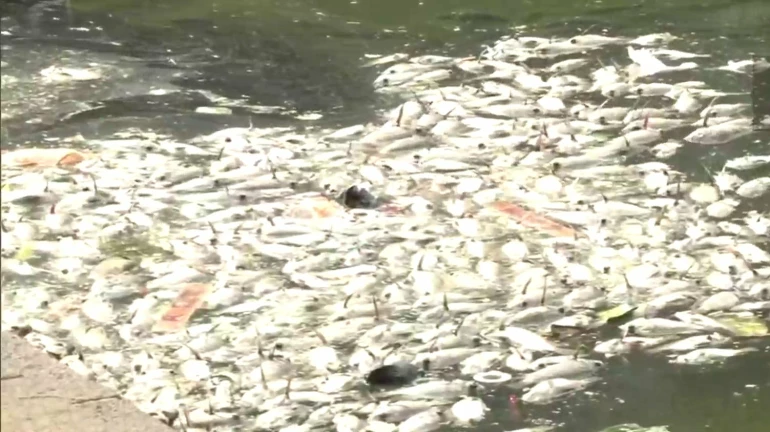
An environmentalist in the city has suggested creating a separate pond using water from the city's historic Banganga lake for religious rituals, so that the lake is protected from pollution.
This development came after hundreds of dead fish and tons of waste was seen at Banganga tank in south Mumbai following the 'Pitrupaksha' ritual was performed on the banks of the reservoir on Sunday.
The waste left after the ritual leads to deterioration of the water quality of the tank and depletion of dissolved oxygen, leading to large-scale fish deaths, experts said.
"Creating a separate pond using Banganga water can help maintain the sanctity of the site, as well as ensure that religious waste does not harm aquatic life. It is a simple, culturally sensitive measure that can make a big difference," said environmentalist Dr. Nagesh Tekale.
An important pilgrimage site dating back to the 12th century, Banganga has long been used for religious ceremonies, including the immersion of flowers, food and other offerings.
"The puja is a matter of deep faith and tradition and should continue, but there is no requirement that the entire offering should remain in the water. Once the flowers or other objects have symbolically touched the holy water, they can be respectfully discarded elsewhere. This small change can go a long way in maintaining the health of the tank and the fish in it," said Pandit Hare Ram Mishra.
After the Pitru Paksha ritual, the Brihanmumbai Municipal Corporation (BMC) cleaned up the dead fish, ten tonnes of floral waste and other religious offerings. The civic body has also installed six dewatering pumps to clean the tanks. It has also implemented measures to restore oxygen levels.





